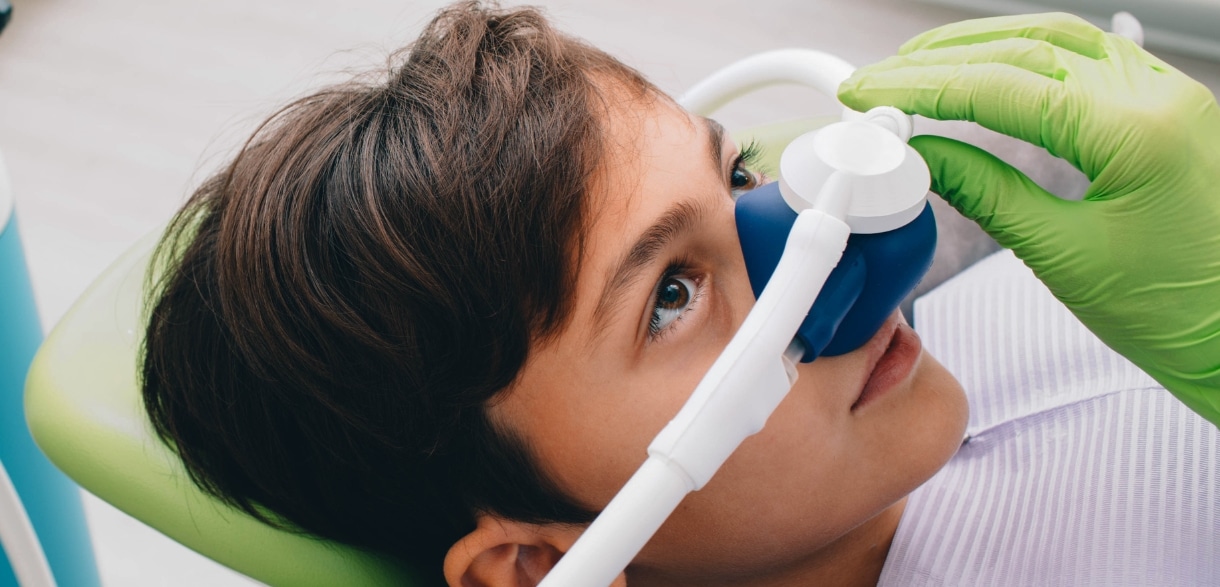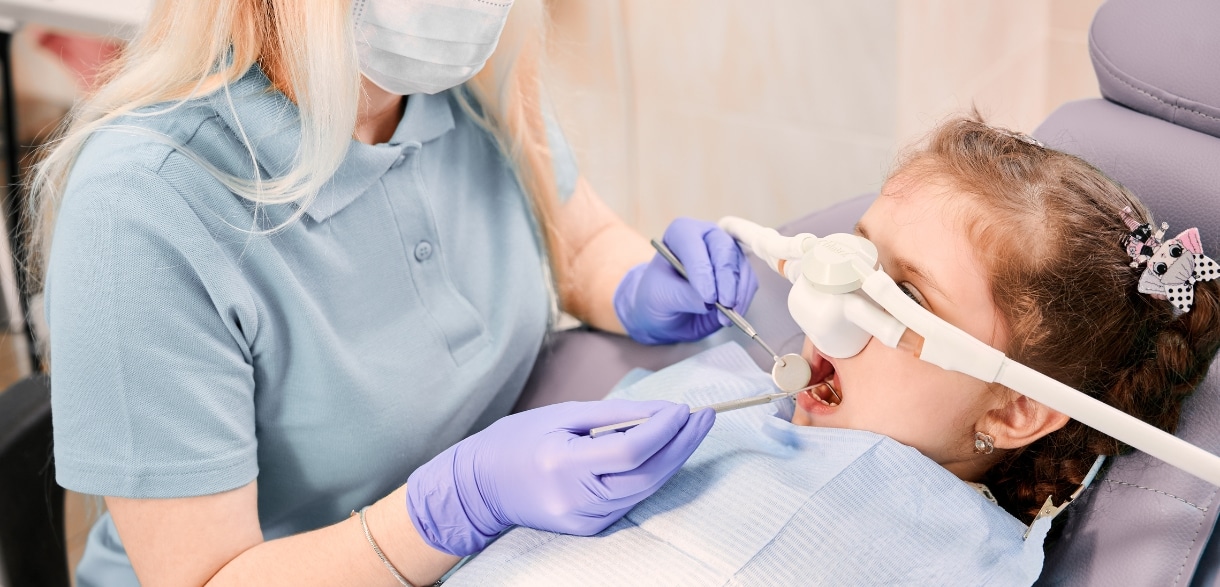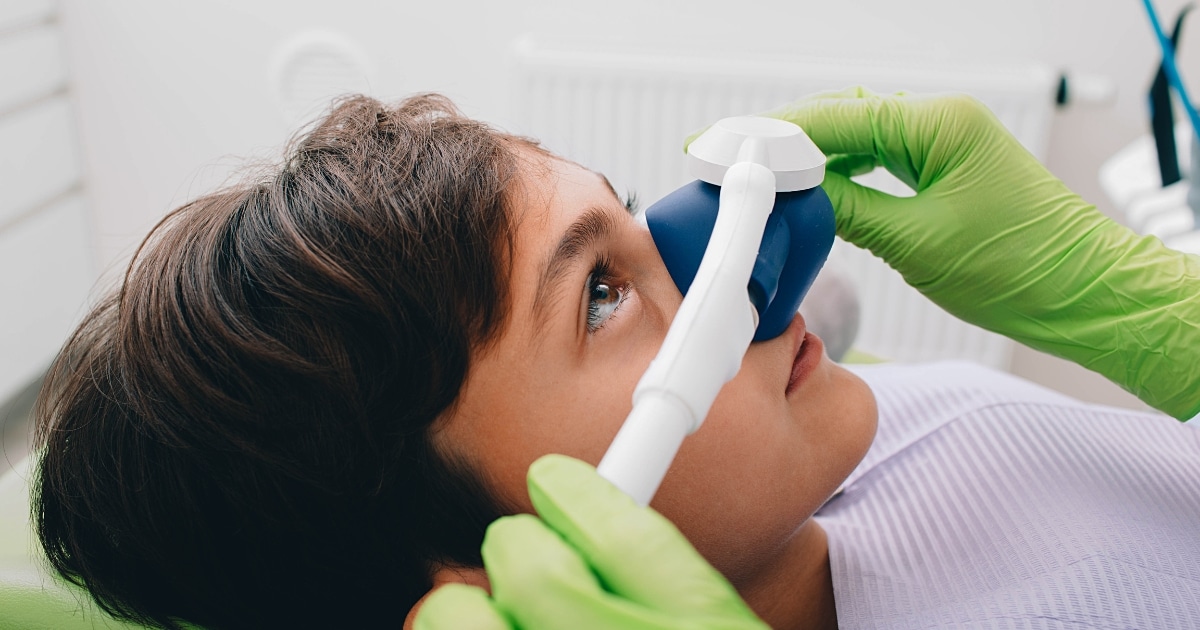Options In Sedation Dentistry For Children With Dental Anxiety

Dental anxiety is common among children, often leading to delayed or missed dental appointments. The fear of pain or the unknown can create lifelong dental phobias if not addressed early. Fortunately, sedation dentistry for children in Allen, TX, solves this dilemma. In this blog, we will explore various options in sedation dentistry that help ease the dental experience for anxious children.
What is Dental Anxiety in Children
It’s essential to recognize that dental anxiety in children is entirely normal. The sights, sounds, and unfamiliar environment can be overwhelming, leading to fear and anxiety. This anxiety can hinder essential dental care and affect a child’s oral health.
Why Sedation Dentistry for Children Matters
Sedation dentistry offers a range of benefits, particularly for anxious children:
1. Pain Management: Sedation helps manage pain, ensuring children experience minimal discomfort during dental procedures.
2. Reduced Anxiety: Sedation techniques calm children, easing their fears and apprehensions about dental visits.
3. Improved Cooperation: Children who may be uncooperative or too young to sit still during treatment can receive care without distress.
4. Optimal Dental Care: Sedation allows dentists to perform comprehensive treatments in a single session, minimizing the need for multiple appointments.
Options in Sedation Dentistry for Children in Allen, TX
1. Nitrous Oxide (Laughing Gas): Nitrous oxide is one of the mildest forms of sedation inhaled through a mask over the child’s nose. It induces a relaxed, euphoric feeling, helping to reduce anxiety. Nitrous oxide is particularly useful for children with mild anxiety or those requiring simple dental procedures.
2. Oral Sedation: Oral sedation involves the administration of medication in liquid or pill form, usually taken an hour before the dental appointment. While the child remains awake and responsive, they are deeply relaxed. This option is suitable for moderate dental anxiety and more extensive treatments.
3. Intravenous (IV) Sedation: Intravenous sedation is administered through a vein, resulting in a deeper level of sedation. It is highly effective for children with severe anxiety or those needing complex dental work. The child remains conscious but is unlikely to remember the procedure.
4. General Anesthesia: General anesthesia is the deepest form of sedation and is typically used for extensive dental surgeries or when a child cannot cooperate due to severe anxiety or special needs. Under general anesthesia, the child is completely unconscious.
The Sedation Process
Before opting for any form of sedation, consulting with a qualified pediatric dentist specializing in sedation dentistry for children in Allen, TX, is essential. The process involves:
1. Assessment: The dentist evaluates the child’s medical history, anxiety level, and the necessary dental procedure to determine the most suitable sedation option.
2. Informed Consent: The dentist discusses the sedation procedure with the child’s parents or guardians, addressing concerns and obtaining informed consent.
3. Monitoring: The child’s vital signs are closely monitored during the procedure to ensure their safety.
4. Recovery: After the treatment, children are monitored as they recover from the effects of sedation, ensuring a smooth and safe transition.
Choosing the Right Option
Selecting the appropriate sedation option depends on the child’s specific needs, the extent of dental work required, and their anxiety level. The pediatric dentist will work closely with parents or guardians to make the best decision for the child’s oral health and overall well-being.
Sedation dentistry for children in Allen, TX, is vital in providing necessary dental care to anxious young patients. Parents and guardians can ensure that their children receive the dental treatments they need while minimizing fear and discomfort by choosing the right sedation option. Remember to consult a qualified pediatric dentist specializing in sedation dentistry to determine the most suitable approach for your child. Nurturing little smiles starts with compassionate dental care that addresses dental anxiety and fosters a positive relationship with oral health.


